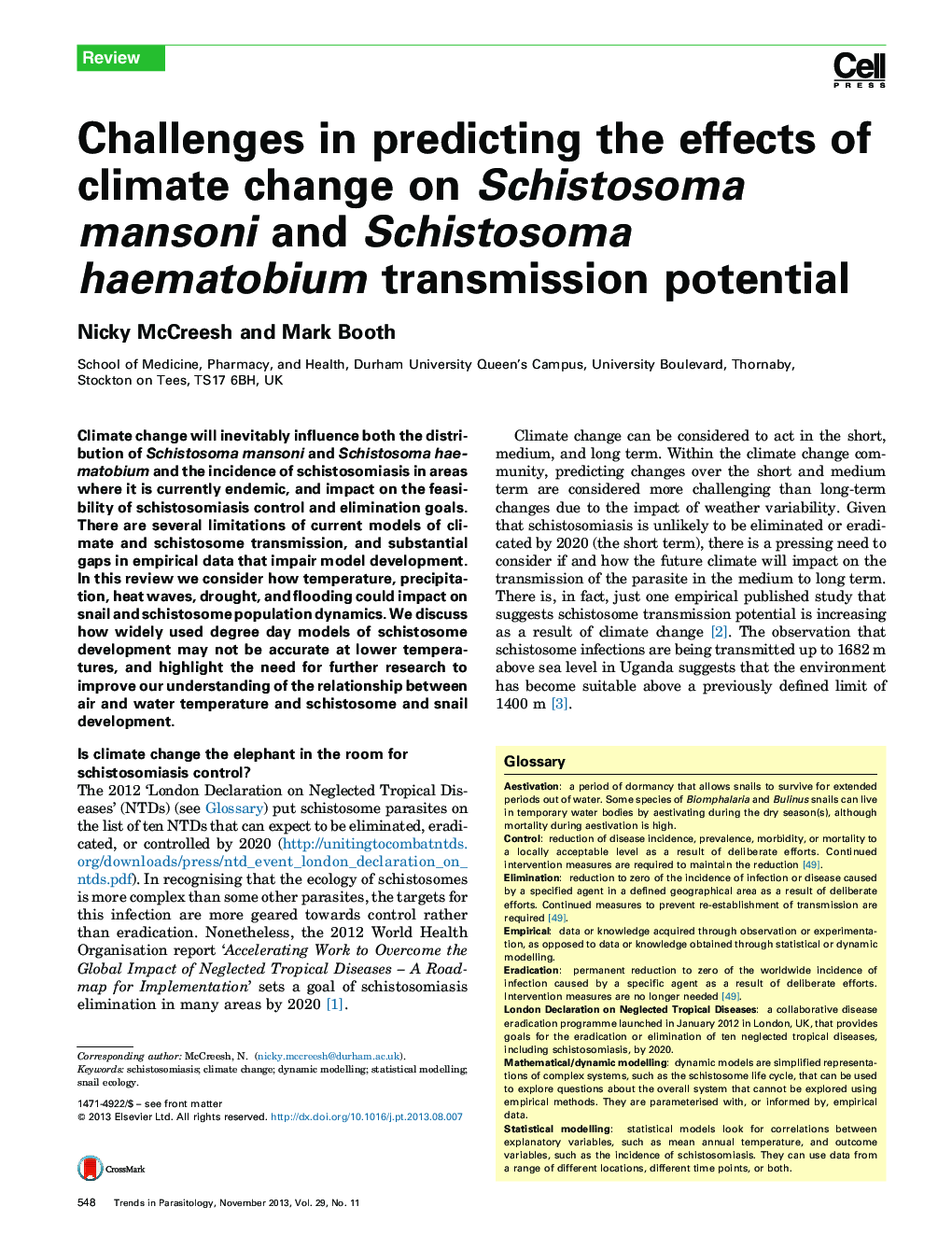| Article ID | Journal | Published Year | Pages | File Type |
|---|---|---|---|---|
| 3423047 | Trends in Parasitology | 2013 | 8 Pages |
•Climate change is an important potential modifier of schistosomiasis control plans.•We highlight important knowledge gaps in predictive mathematical models.•We stress the need to consider the impact of changes in rainfall and extreme weather events.•We suggest observations and experiments needed to support modelling efforts.
Climate change will inevitably influence both the distribution of Schistosoma mansoni and Schistosoma haematobium and the incidence of schistosomiasis in areas where it is currently endemic, and impact on the feasibility of schistosomiasis control and elimination goals. There are several limitations of current models of climate and schistosome transmission, and substantial gaps in empirical data that impair model development. In this review we consider how temperature, precipitation, heat waves, drought, and flooding could impact on snail and schistosome population dynamics. We discuss how widely used degree day models of schistosome development may not be accurate at lower temperatures, and highlight the need for further research to improve our understanding of the relationship between air and water temperature and schistosome and snail development.
